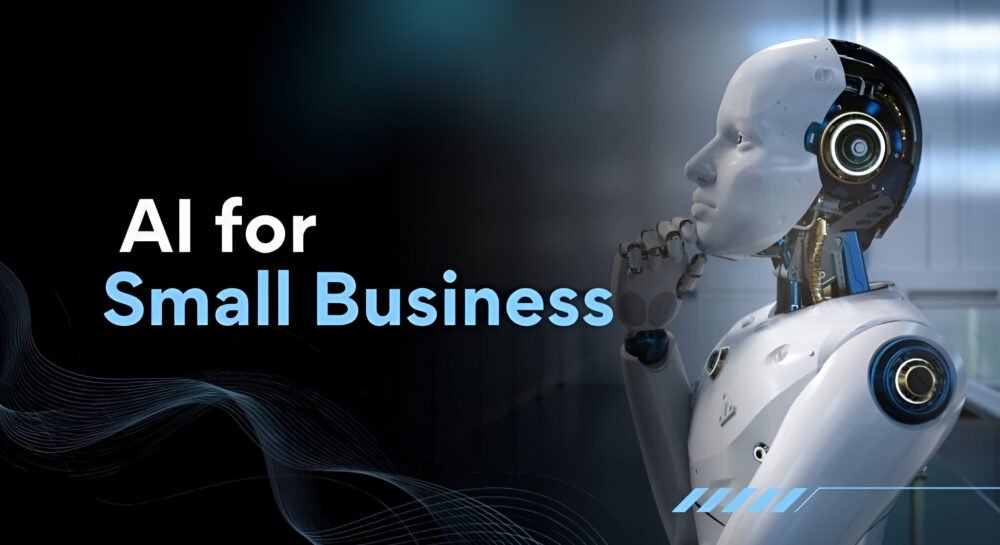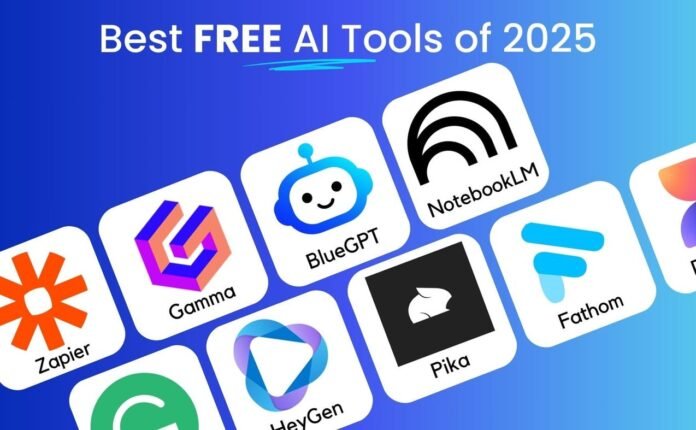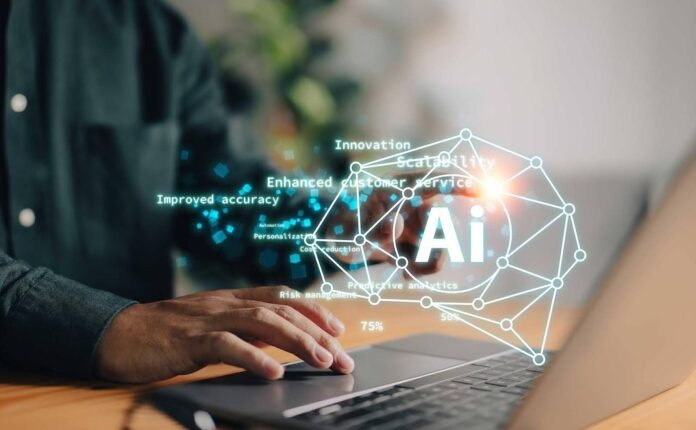In the rapidly changing world of 2025, artificial intelligence (AI) is a must-have for small businesses to compete, grow, and flourish. AI tools are now both affordable and accessible, and small business owners are well-positioned to take advantage of these technologies to increase efficiencies, better the customer experience, and create new revenue streams.
The Growth of AI in the Small Business Arena
Many business owners will remember when AI was seen only in large companies with ample funding. In 2025 AI is democratized, with intelligent tech finding its way into even the smallest business. Advances in “cloud” computing and the building of low-code and no-code platforms and AI will-no-code platforms and AI-as-a-Service (AIaaS) are “cheap” and widely available. This opens doors to leverage previously unavailable plays of AI.
1. Improving Customer Experience
Personalized Marketing
AI algorithms are able to process customer data and glean insight about the customer’s preferences, behavior, and purchasing history. Once the AI has analyzed this data, hyper-personalized marketing campaigns can be built to enhance engagement levels and drive more conversions. Going one step further, AI can automatically tailor content in any one email a customer could receive or recommend products based on prior engagement and transactions.
Chatbots and Virtual Assistants
AI-powered chatbots now operate 24/7 for customer service needs, handling everything from FAQs to processing returns. As these Bots have gotten better, they have also become more conversational and human-like in their Turing Test. The customer experience can be enhanced using AI as we take out the humans and keep the labour cost down.
2. Operational Efficiencies
Managing Inventory and Supply Chains
AI systems can leverage historical sales figures, market trends, and seasonal factors to determine expected demand more reliably. This means businesses can notice what is the ideal stock of products to hold at any time, avoid stock-outs or excess stock, and optimize supply chains for other efficiencies.
Automating Routine Tasks
AI tools can automate tasks such as payroll, invoicing, and scheduling social media, allowing business owners valuable time to devote to growing their business with more strategic thinking. Robotic Process Automation (RPA) powered by AI can reduce human error and create more productivity in businesses.
3. Enhancing Decisions
Predictive Analytics
AI will analyze huge data sets and offer predictions regarding customer churn, sales trends or business risks. With predictive data, small business owners can plan in advance and won’t need to react to what has happened in the market.
Business Intelligence (BI)
Modern BI tools with AI are offering owners the opportunity to get real time dashboards and visualisations so owners can have a better understanding of how their business is performing. This creates data-led strategies for owners, rather than going on their gut feelings!
4. Improving Marketing ROI
Smart Ad Targeting
AI platforms like Meta Ads or Google Ads leverage machine learning to, optimize advertisement placement and bidding strategies to help small businesses get more out of their advertising budget by making sure they are advertising at the best time to the best audience.
Content Generation
Generative AI tools can help create great blog posts, product descriptions, video scripts, and social media captions. All of this helps lessen the need for large chunk of writers and keep a consistent message around their brand.
5. Cybersecurity and Fraud Detection
AI can help with cybersecurity because it can detect uncharacteristic patterns and instantly determine where it sees a potential threat to an organization. This is especially important for small business where IT security teams are limited. AI-powered fraud detection can protect financial transactions and customer data to help develop trust, and protect reputation.
6.Talent Management
Intelligent Hiring
An AI-driven applicant tracking system can be used to recruit more efficiently and accurately by scanning resumes and ranking candidates, and even performing, interviewing candidates through video, AI-driven tools.
Employee Retention
AI can be used to understand employee satisfaction via sentiment analysis on employee engagement surveys and feedback, and ultimately to retain the best employees and create a culture of people engagement.
7. Expanding Into New Markets
For example, through AI systems that can provide global market data, language translation services, and trend identification opportunities, as well as AI tools that can help alone with data analysis, including conversion rates, small businesses can confidently explore and introduce a global or an international expansion strategy.
Challenges and Considerations
As we can see there are a lot of profit potential within AI, but it is important for small business owners to think about:
- Data Privacy Laws: Small business owners need to ensure they comply with any data privacy regulations, like GDPR or CCPA as these are laws.
- Costs: Although costs have come down from before, it is still an investment to AI adoption.
- Change Management: Adopting AI is changing processes, and workflows will likely change, which requires training and a mindset change.
Conclusion
AI is no longer just a play thing for big corporations. In 2025 AI is likely to be one of the most important drivers of growth for a small business. Embracing AI allows small businesses to be more efficient, adaptable, and competitive within their industry. The process of adopting AI begins small, find the right tools, and then grow the use of AI as a part of the business.



